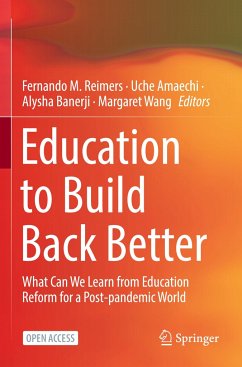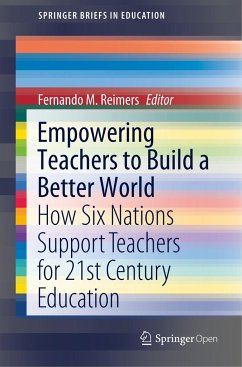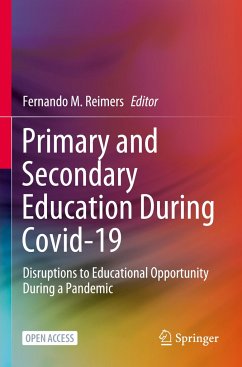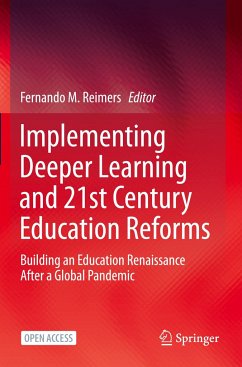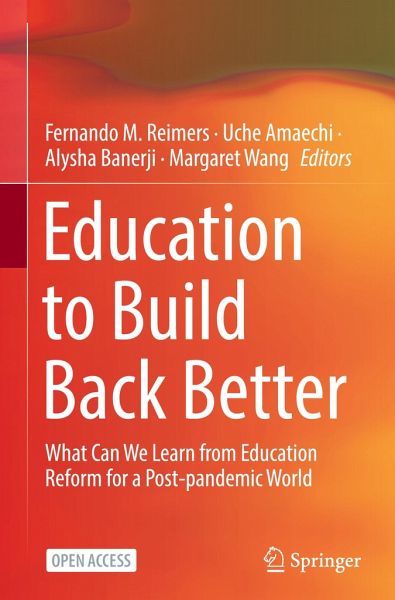
Education to Build Back Better
What Can We Learn from Education Reform for a Post-pandemic World
Herausgegeben: Reimers, Fernando M.; Amaechi, Uche; Banerji, Alysha; Wang, Margaret
Versandkostenfrei!
Versandfertig in 6-10 Tagen
38,99 €
inkl. MwSt.

PAYBACK Punkte
19 °P sammeln!
This open access book examines the implications of the COVID-19 Pandemic for education systems and argues that major education reforms will be necessary, particularly in the Global South, to address the learning loss caused by the pandemic. To inform those reforms, knowledge about the implementation reforms in the Global South is necessary, and such knowledge is seriously lacking as the existing literature on the implementation of educational change focused principally in reforms in countries in the Global North. This book contributes to address this gap by examining five major education refor...
This open access book examines the implications of the COVID-19 Pandemic for education systems and argues that major education reforms will be necessary, particularly in the Global South, to address the learning loss caused by the pandemic. To inform those reforms, knowledge about the implementation reforms in the Global South is necessary, and such knowledge is seriously lacking as the existing literature on the implementation of educational change focused principally in reforms in countries in the Global North. This book contributes to address this gap by examining five major education reforms in India, Egypt, Taiwan, Vietnam, and Senegal, and by presenting two novel approaches to climate change education using a bottoms up strategy of reform. The chapters examine the implementation process drawing on a theoretical model of educational change by Reimers (published in Educating Students to Improve the World by Springer in 2020).
The book concludes discussing the implementation of such reforms as an evolutionary and learning process, characterized by four dimensions: the goals of the reform, the drivers of the reform, the reform strategy, and the mindsets about educational change which undergird the implementation strategy.
The book concludes discussing the implementation of such reforms as an evolutionary and learning process, characterized by four dimensions: the goals of the reform, the drivers of the reform, the reform strategy, and the mindsets about educational change which undergird the implementation strategy.



